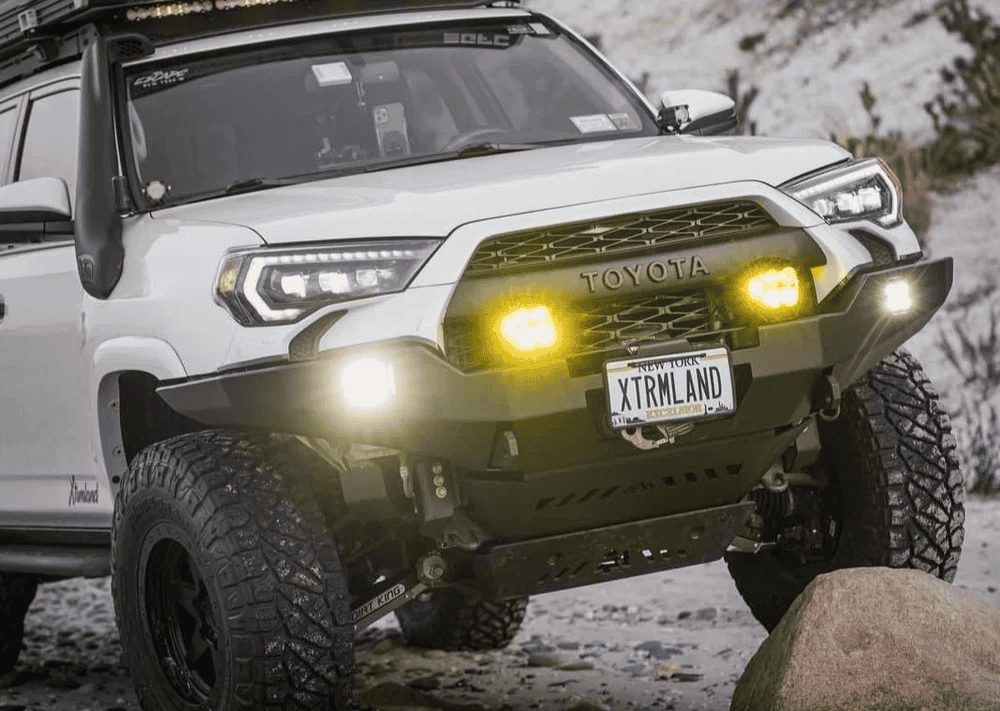Overland Vehicles

Compact, quiet, and surprisingly capable, an overland teardrop trailer focuses on range and resilience rather than hotel style amenities. When scanning overlander campers for sale, start with basics that define trail manners. Ground clearance influences breakover and departure angles. All terrain tires and a strong frame help resist punctures and flex. A multi axis coupler preserves control on uneven surfaces by allowing pitch, roll, and yaw between vehicle and trailer.
Suspension is the heartbeat. Many overland teardrop trailers use independent trailing arm setups with long travel shocks and coil springs. Some rely on leaf springs with shock upgrades. Independent systems typically track better over washboard and ruts, while leaf spring designs can be simpler to service in the field. Either way, check bushing quality, shock tuning, and whether the suspension geometry preserves proper axle alignment at full articulation.
Power defines comfort off pavement. An off grid teardrop camper should list battery chemistry, usable capacity, charge inputs, and inverter specs. Lithium iron phosphate offers long cycle life and depth of discharge advantages in a compact footprint. Smart DC to DC charging from the tow vehicle, roof solar, and shore power create a resilient energy mix. Pair that with a well vented battery bay and clear service access.
Weight is more than a number on a tag. Look at gross vehicle weight rating, tongue weight, and balance when loaded with water and gear. A longer tongue can steady highway behavior and improves clearance when reversing around tight turns. Recovery points, a full size spare, and space for a jack and tools make field fixes faster.
The best layouts keep cooking fast and sleep simple. Top hinge galley doors shield the cook in light rain. Drawers on quality slides survive corrugations better than flimsy bins. Inside, a real mattress, roof vent with reversible airflow, and strategic insulation control condensation and temperature swings.
Start with intended terrain. Forest roads and mild two tracks point to moderate clearance and simpler suspension. Rocky ledges, deep ruts, or sand call for additional travel, skid protection, and beadlock capable wheels. Then align weight to your tow rig. Many midsize SUVs and crossovers are happy in the twelve to eighteen hundred pound dry range, while heavier builds sit behind half ton trucks.
Power planning begins with your usage pattern. Weekend trips may thrive with a one hundred amp hour lithium battery and a portable panel. Frequent winter travel or longer stays may demand three hundred plus amp hours, a larger inverter for induction cooking, and shore power fallback. Document your appliance list and duty cycles before you shop so you can compare real loads to system limits.
Water is the quiet hero of comfort. Confirm tank capacity, fill and drain access, and whether plumbing is tucked inside insulated spaces for shoulder season trips. Some overland teardrop trailers mount an exterior shower and quick connects for filtration. Factor in jerry can storage if you often leave pavement for days at a time.
Storage earns attention. Roof bars or a rack carry Maxtrax, shovel, and spare fuel away from the galley. Interior cubbies should latch securely. A front storage box works best when sealed, vented, and gasketed to keep dust out and smells from fuel or propane contained.
Finally, inspect build quality. Look for sealed seams, corrosion resistant hardware, and protected wiring looms. Crawl underneath to check welds, brake line routing, and abrasion guards on hoses. A trailer that is quiet over bumps usually signals tight tolerances and careful assembly.
Not every trip needs a tall cabin or slide out kitchen. For quick departures and long gravel days, an overland teardrop trailer keeps things simple. It sleeps warm, cooks fast, and follows without drama through switchbacks or narrow tree lines. If you travel to trailheads, desert camps, or forest sites where space is tight and wind can howl, a compact profile shines.
For shoulder season and winter, add insulation, a vented heater, and window shades. In hot climates, focus on ventilation, a light exterior color, and shaded awnings that create livable outdoor rooms. Riders and paddlers appreciate a rear galley that doubles as gear staging with food crates beside tools and spares.
If you prefer a purpose built approach, see our Explore overland rigs. A dialed platform lets you prioritize the routes you love and trim everything else.
When the checklist narrows your options, build support matters. OZK Customs designs and crafts custom towables and targeted upfits that align with your terrain, gear, and power needs. From lithium power and solar integration to racks, lighting, and recovery points, our team tunes every detail for reliable off grid travel. Learn how we approach durable, field serviceable upgrades with our Custom overland upfit process, or get to know our philosophy on Why choose OZK Customs.
In Fayetteville, Arkansas, clients can pick up and shakedown near renowned trails and river corridors, then refine final adjustments before heading home. That hands on delivery, paired with clear documentation, means you leave confident and ready for the backcountry.
If the search for overlander campers for sale has you imagining routes instead of sales lots, let’s turn that plan into a capable trailer that fits your life. Start with a conversation about your tow vehicle, target weight, power profile, and storage. We will map the build and integrate only the systems you will use, so every mile feels easy. Explore options now at Explore overland rigs.
More From OZK Customs:
Ready to design a purpose built overland trailer or towable that matches your routes, gear, and power needs? Talk with OZK Customs in Fayetteville to map your systems, structure, and storage. We can craft a full custom build or a targeted upfit so you roll out with confidence.
ADDRESS:
6159 E Huntsville Rd, Fayetteville, AR 72701
PHONE:
(479) 326-9200
EMAIL:
info@ozkvans.com